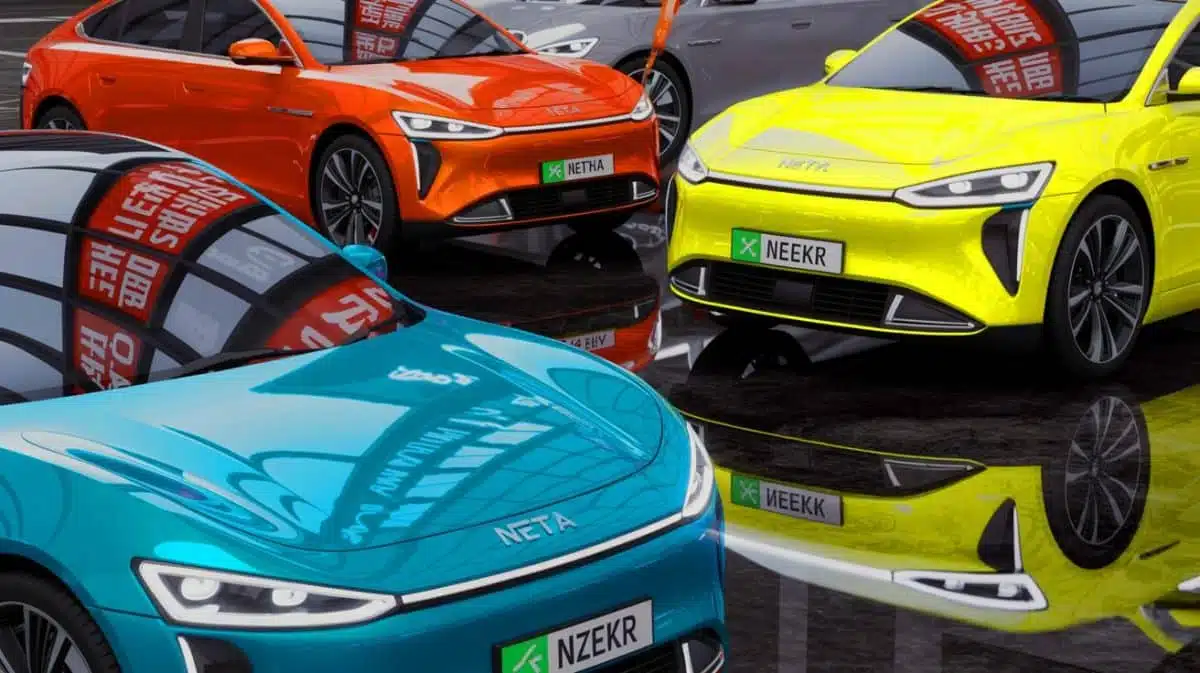| IN A NUTSHELL |
|
The rapid expansion of Chinese electric vehicles (EVs) into global markets has been nothing short of remarkable. Brands like Neta and Zeekr have emerged as formidable competitors to industry giants such as Tesla and Volkswagen. However, recent investigations have cast a shadow over this success. Allegations have surfaced that some Chinese automakers have inflated their sales figures to meet growth targets or gain financial advantages. This revelation raises significant questions about the integrity of reported sales and the true health of the Chinese EV market.
Chinese EVs: Success Story or Illusion?
In recent years, Chinese electric vehicles have gained substantial traction across Europe, Asia, and South America. These vehicles are celebrated for their affordability and advanced technology, making them attractive alternatives to established brands. However, a darker narrative underlies this story. Investigations suggest that companies like Neta and Zeekr might be artificially inflating sales numbers. By registering vehicles as sold when they are merely insured, these manufacturers could be misleading stakeholders.
Documents reviewed by Reuters highlight that Neta, owned by Zhejiang Hozon, and Zeekr, a subsidiary of Geely, might have engaged in this practice. The strategy involves insuring vehicles upon factory release, allowing them to be counted as sold. This tactic raises concerns about the authenticity of reported sales. Notably, Neta’s alleged manipulation involved at least 64,719 vehicles between January 2023 and March 2024, representing over half of their announced sales during that period. Such practices not only mislead investors but also distort market realities.
Fraud or Business Strategy?
The potential manipulation of sales figures serves multiple purposes. It inflates the financial results of these companies, enhancing perceived growth and competitiveness. Moreover, achieving certain sales quotas can unlock government subsidies tied to electric vehicle production. In a fiercely competitive Chinese market, these incentives can be crucial for a brand’s survival.
Local authorities and state media have begun scrutinizing these practices. The China Securities Journal identified sales discrepancies for Zeekr in cities like Shenzhen and Xiamen. Some consumers in Guangzhou and Chongqing reported discovering that their vehicles were insured before they made their purchase, leaving them feeling deceived and uncompensated. These revelations raise questions about the ethical considerations of such business practices and the implications for consumer trust.
Corporate Responses and Accountability
The accused companies have provided vague responses to these allegations. Zeekr claims that the vehicles in question were meant for showroom display and insured for safety reasons. They assert that these cars remained new at the time of sale, though it remains unclear if they were recorded as sales in financial reports.
Geely, Zeekr’s parent company, dismissed the allegations from Chinese media but did not address Reuters’ findings. Meanwhile, Neta and its local partner, Xiamen C&D, have not responded to requests for comment. This silence fuels speculation about the extent of such practices within the industry, suggesting a potential systemic issue rather than isolated incidents.
The Overheated Chinese Auto Market
This controversy points to broader challenges within the Chinese auto industry. With a plethora of brands vying for market share, economic viability becomes a pressing concern. The market’s saturation could be driving companies to engage in questionable practices to maintain a competitive edge. The pressures of competition and market demands may lead to ethical compromises.
The Chinese government is considering measures to address these issues, such as restricting vehicle resale within six months of registration. This policy aims to prevent premature sales counting and restore transparency in the industry. However, the effectiveness of these interventions remains to be seen, as the market grapples with balancing innovation and ethical business practices.
The unfolding revelations about inflated sales figures in the Chinese EV market highlight a critical issue that extends beyond mere numbers. They challenge the perceived integrity of a booming industry and raise questions about the future of global automotive markets. As authorities and consumers demand accountability, will the industry adapt to ensure transparency and ethical practices, or will it continue to seek growth at any cost?
Did you like it? 4.4/5 (20)






Are these allegations true, or just another conspiracy theory? 🤔
What happens to the consumers who bought these “sold” cars?
I’m not surprised. In business, anything goes for a competitive edge!
Maybe they should focus more on the quality of their cars than on the numbers. 🚗
How do these sales tactics affect the global EV market?
Thanks for shedding light on this issue. Transparency is key!
So much for honest competition… 😒
Is this really unique to Chinese automakers?
Can we trust any sales figures anymore? 🤷♂️
What measures will the Chinese government likely impose?